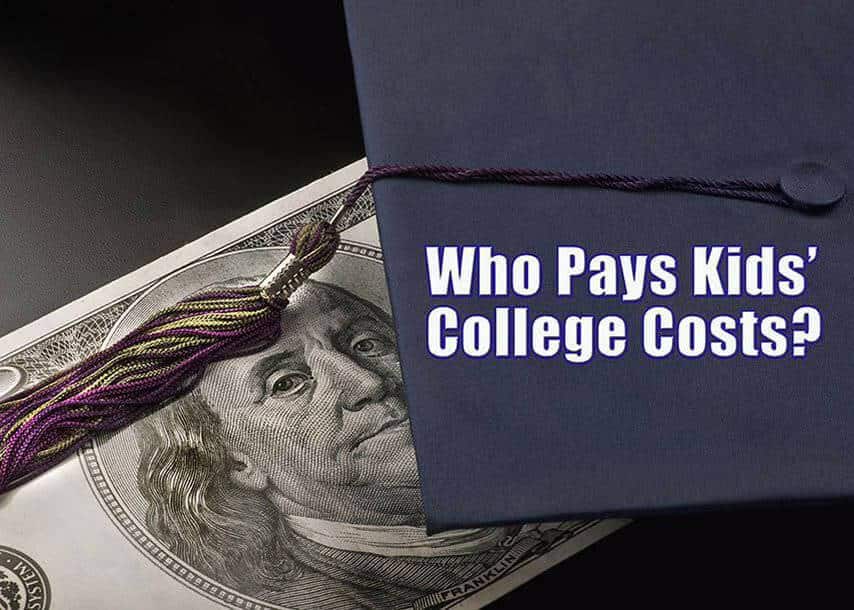As a divorce lawyer on Long Island I see that as college costs continue to soar, many Long Island couples facing divorce have questions about who will have to pay for their children’s college tuition. Usually, such concerns are addressed in a private agreement between the parents because of mutual concern for the well-being of their children.
The decision is often based upon previous expectations about how college would be paid for and who has the ability to pay.
If You Can’t Decide, a Nassau County or Suffolk County Judge May Do It for You
Unfortunately, when an agreement cannot be reached between the parties, the questions of who will pay and how much they will pay may ultimately be decided by a Suffolk County or Nassau County judge. Since married couples are not required by law to pay for children’s college expenses, courts are careful before requiring that divorced parents do so. When the circumstances indicate that there was an ability, intent and an expectation that college would be paid for by parents, then the responsibility for the tuition will likely be established. In this case, courts on Long Island will make an assessment based on the totality of the circumstances to determine whether and with whom the responsibility lies. When it comes to determining who must pay and how much, there are a number of factors that will be considered by the courts.
Long Island Courts Try to Be Fair & Equitable
When addressing the issue of who pays for children’s college tuition and how much they will pay, courts seek to resolve the matter as fairly and equitably as possible. The court will look to factors such as the best interests of the child, the financial ability of each parent to pay, the parents’ educational backgrounds, as well as the children’s educational background, academic ability and ambitions. Whether the parents had saved money that was earmarked for the children’s college educations will also carry weight in the court’s decision. The financial ability of the children will also be considered, including any scholarships or financial aid. Evaluating these factors will provide a more complete picture of the family’s expectations of the children’s college attendance prior to divorce.
What is the ‘SUNY Cap’?
In addition to the above considerations, Nassau County and Suffolk County courts have an interesting strategy to determine how much parents are required to pay for college tuition. Typically, the cost of attendance at a State University of New York (SUNY) college is used as a guidepost for how much is required. This is known as the “SUNY Cap.” Since different SUNY schools have different tuitions, it is important to consider which SUNY school will be used as the guidepost in your court.
Don’t Forget Books, Room & Board, Tests, Fees, Travel & Living Expenses
The costs of books, room and board, entrance examinations, application fees, travel and living expenses will also be considered. Nevertheless, if a child had plans to attend a specific program at a private college and the parents have the ability to send them, a court may exceed the SUNY cap after considering any compelling circumstances to show why the child should attend that program. Keep in mind, however, that if a child is a senior in high school and has been accepted to the college of his choice, the argument that a private college is more appropriate for his needs may be more persuasive to a judge than a freshman in high school without any college plans.
Long Island Divorce Lawyer Says Divorce Mediation Can Help Resolve Issues
As in most family law and divorce issues, the parents are most fit to decide what arrangement is best for the children and family as a whole. Divorce mediation is known to be the most effective way of problem-solving such issues in a divorce. Many couples choose to mediate through conflicts such as who will pay for college tuition, as the mediation process is typically far less expensive and time consuming than divorce litigation. If you are having trouble determining who will be responsible to pay for your children’s college tuition, mediation is certainly a good place to start.
Contact an Experienced Long Island Divorce Lawyer for a Free Consultation
Whether you think that you and your spouse can come to an agreeable solution on college tuition or not, it is important that an experienced divorce attorney be consulted to protect your interests. If you have any questions about your divorce, legal separation, or other family law matter, it is in your best interests to speak to an experienced divorce lawyer on Long Island that can help you understand your rights and obligations in your unique set of circumstances. Contact the Long Island Law Office of Robert E. Hornberger, P.C. today at 631-923-1910 to schedule your free consultation.
 Download our Free New York Divorce Guide
Download our Free New York Divorce Guide
Our 41-page “Guide to New York Divorce: What You Need to Know Before Hiring a Divorce Lawyer in New York” written by an experienced family law lawyer Long Island’s Robert E. Hornberger, Esq., provides you with real information on the divorce process and the laws it rests upon in the state of New York. This book will help give you a solid foundation upon which you can begin the process of making your family’s, life better. Download your Free Guide to New York Divorce here.it is best to speak to an experienced divorce lawyer on Long Island that can help you understand your rights and obligations in your unique set of circumstances. Contact the Long Island Law Office of Robert E. Hornberger, P.C. today at 631-923-1910 to schedule your free consultation.













